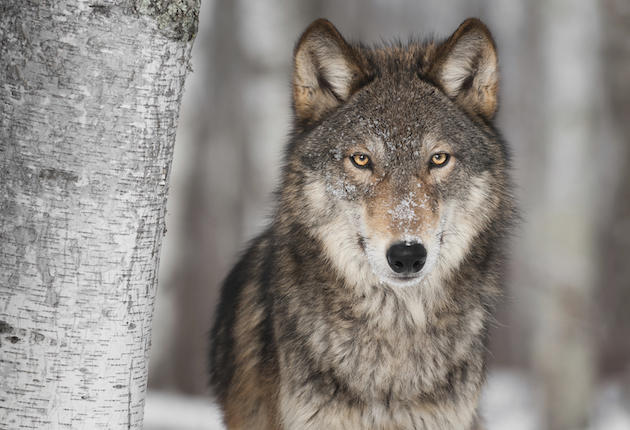With a 4-2 vote, Oregon’s Fish and Wildlife Commission has ended the endangered species listing of wolves within its jurisdiction. While the controversial predators will not be immediately hunted, the step by the FWC brings their eventual taking that much closer.
The commission made its important decision Monday after nearly ten hours. According to Portland’s Register-Guard, there are currently 81 wolves in the state. To be delisted under management guidelines, four breeding pairs had to be present for three consecutive years. That goal was reached in January 2015.
The vote will not effect wolves west of Highways 97, 20, and 395; those areas will still be under federal regulation per the Endangered Species Act.
No immediate changes will take place for the animals. Hunting may occur at a future point, but for now killing a wolf is still punishable by as much as $6,250 and one year in jail.
As can be expected, the issue was and is highly contentious: at least two national groups suggesting changing the wolves’ status to “threatened” instead of total delisting, but to no avail.
Two commissioners — Greg Wolley and Laura Anderson — voted against the delisting, but Anderson did support delisting wolves in eastern Oregon, where the majority of the state’s wolves live. The law’s wording did not allow for partial delisting, however.
The Boone and Crockett Club praised the commission’s move, reiterating its stance on wolf management from a 2008 statement:
Since the time of Theodore Roosevelt, hunters have led a conservation movement that brought many species from vanishing to flourishing. Wolves, a comparatively new element in the balance after a 60-70 year absence, could have positive effects on overall ecosystem health. However, in the northern Rockies, historic behaviors and patterns of elk, deer, and moose — prey for wolves and game for hunters — are in flux. Wolves are also impacting livestock. Without state-administered management, wolves could seriously impact America’s conservation system, as well as private land, farming, and ranching interests.
Opponents are already moving to reverse the delisting. The Center for Biological Diversity released a statement Monday saying the commission’s decision was based on flawed science. It vowed to challenge the decision in state court.
“With just 80 or so wolves in the entire state, gray wolves are nowhere near recovery,” the statement quoted Amaroq Weiss, the Center’s West Coast wolf organizer, as saying. “Wolves deserve a real chance at recovery. I’m deeply disappointed the commission decided to blatantly ignore the science, the law, and the will of the majority of Oregonians.”
In its 2008 statement, Boone and Crockett quoted then-president Lowell E. Baier as saying, “All of the facts and latest data reaffirm our position that the best hope for the gray wolf today is delisting from the Endangered Species List as planned, and turning management responsibilities over to state agencies. Tying up their future in the courts is not the answer.
“The wolf issue is regional in nature but international in scope with an unprecedented range of stakeholders, many of whom are victims of the emotion and hyperbole surrounding this species. The polarization is like nothing else that conservationists have addressed — ever.”
Cover Image: Thinkstock

